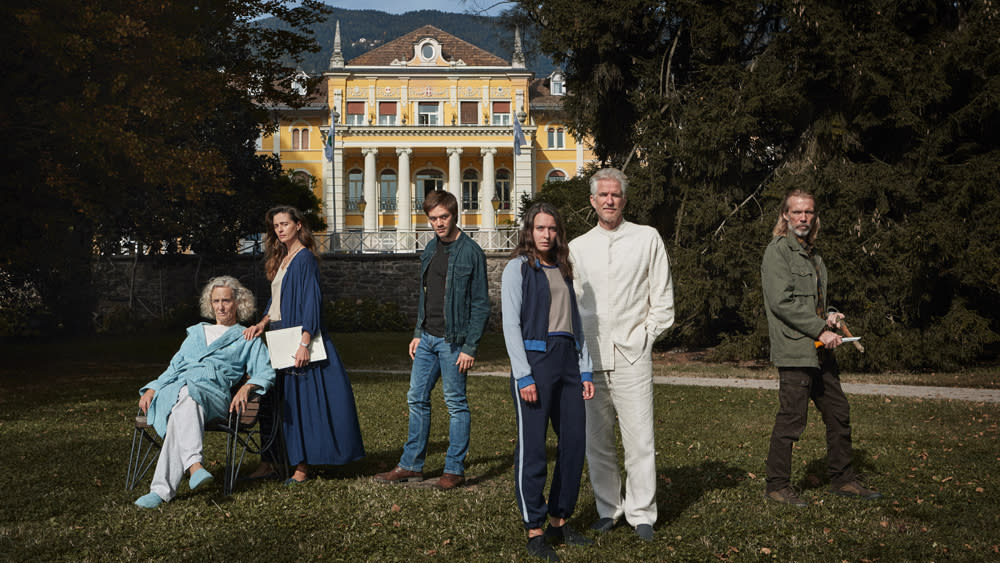Trentino Film Commission Leads by Example With Eco-Friendly Program T-Green

Click here to read the full article.
In 2015, Luca Ferrario set out to lead by example. Though many European commissions already offered sustainability programs, none, he felt, did so in ways that could flourish in his own back yard.
“Most of my colleagues offered guidelines to follow, only those were not enough, at least not in Italy,” says Ferrario, who is head of the Trentino Film Fund and vice president of the Italian Film Commissions Network. “[Not only did] we need to prepare a list of actions to be taken during production, we needed to make it easy to use, because we didn’t want to scare producers away. You have to break the ice, start with a simple approach, and then take it from there,” he continues.
More from Variety
MK2 Nabs International Distribution Rights to Chilean Western 'The Settlers' (EXCLUSIVE)
Director Stephan Komandarev on MIA Player 'Rounds' and His Bulgarian Trilogy
San Sebastian New Directors Winner Jorge Riquelme on 'Some Beasts,' Screening at MIA
So the Trentino Film Commission got to work designing a new plan, one that could wed an intuitive checklist with additional financial incentives, all in an effort to promote sustainable production within the Trento region. In 2017, the Trentino Film Commission introduced T-Green Film, an optional certification program that allowed producers to also ask for Green certification – and with it, addition financial aid – while applying for the up to €200,000 ($223,000) the Trentino Film Commission offers in regional support.
T-Green presents a point-based rating system that offers detailed sustainability guidelines across six areas: Energy reduction, transport and accommodation, catering, material selection, waste management, and external communications, attributing points for each protocol adhered to, totaling up to 50 points overall.
During the application phase, a company would indicate how many points it planned to claim. Once evaluated, and subsequently checked for compliance during the shoot, these eco-friendly productions would receive extra financial support from the Trentino Film Fund and a certification of sustainability issued by an outside agency, the APPA of Trento (Provincial Agency for the Protection of the Environment).
For Ferrario, many of these protocols are almost self-evident. “These are things people are already doing at home,” he says. “We already turn off the lights, we already recycle and try to limit our waste, and we already buy hybrid cars – it’s exactly the same, scaled up for productions.”
Since the program’s launch, roughly half the projects applying for regional support have also opted for T-Green certification; in hard numbers, that makes for 10 productions with certification and two more currently under review. With the Swedish series “Sanctuary” (pictured), the regional fund certified its first foreign project, only Ferrario has more wide-reaching international goals than simply bringing international projects to his home turf.
“We’re now trying to export this model, because we’ve seen a lot of interest from other regions and countries around Europe,” he notes. “We’ve been invited to present this model in Sweden, Norway, Germany and at Cannes, and we’re currently working to expand it to neighboring Italian regions and to other partners across Europe.” To that end, the scheme recently underwent a soft-reboot, dropping some of its regional particularities and rebranding with a new name and website, Green.Film.
“We’re trying to build a network of funds using the same tools, [because] this is about action people can take on set no matter where they are,” Ferrario explains. “If producers move around Europe finding different rules regarding sustainability everywhere they go, that’s not going to help. But if there’s continuity, it will be easier to keep going, and to organize joint training activities, all focusing on the same thing. That way people can actually start working in partnership when it comes to sustainability.”
Best of Variety
Listen: Hugh Grant on Why He Would Kill Social Media if He Could
'Game of Thrones' Filming Locations in Northern Ireland to Open as Tourist Attractions
Sign up for Variety’s Newsletter. For the latest news, follow us on Facebook, Twitter, and Instagram.

